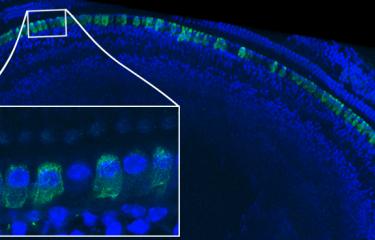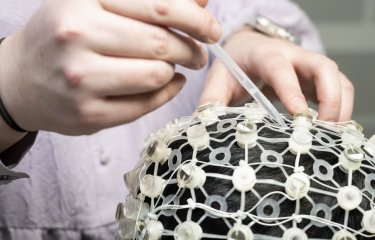Scientists at the Hearing Institute, an Institut Pasteur Center, have established the full picture of therapeutic avenues for certain types of hearing impairments. They focused on so-called sensorineural deficiencies, caused by an anomaly in the inner ear or auditory nerve. Over the past 10 years, preclinical gene therapy studies have shown promising results. This research, aimed at restoring hearing, will persevere and expedite its progress to provide curative treatment to patient patients in the near future with the new Institut Hospitalo-Universitaire (IHU) supported by the Hearing Institute and hosted by the Institut Pasteur.
Since the 2010s, researchers have been studying the molecular mechanisms underlying deafness of which certain types of so-called sensorineural deafness and hearing impairment. These disorders are caused by a defect in the inner ear or auditory nerve. In pre-clinical studies, researchers at the Hearing Institute, an Institut Pasteur Center, have developed innovative gene therapy strategies to treat inherited deafness. One of these therapies was successfully tested on a mouse model mimicking the profound human deafness that characterize DFNB9, in 2019. The positive outcomes of this study have laid the foundation for an ongoing clinical trial conducted within the framework of the AUDINNOVE project.
The hopes of gene therapy for “sensorineural” deafness
A recent review published in Nature Reviews Genetics presents a comprehensive compilation of approaches developed in preclinical studies within the past two decades. This review extensively explores the main opportunities and challenges in achieving effective, safe, and long-lasting gene therapy for the inner ear, specifically aiming to prevent or cure monogenic forms of deafness and related balance disorders. The focus of this research lies on the cochlea, the auditory portion of the inner ear. Significantly, the review highlights the encouraging prospects of gene therapy for DFNB9 deafness. The advancements made in this area serve as a promising step for the future development of gene therapy targeted at addressing this specific form of deafness. This reinforces the hope that gene therapy holds potential for effectively treating various monogenic deafness conditions and signifies a significant step forward in the field.
To optimize future gene therapies, researchers are directing their efforts towards acquiring additional knowledge. These areas of focus include:
- deepening understanding of the pathophysiological processes underlying the various forms of deafness; (for example: mapping gene expression in the cochlea: a new hope for gene therapy in deafness)
- deciphering regulatory sequences to avoid potential adverse effects of therapeutic agents;
- Understanding signaling pathways for cochlear cell survival.
The knowledge acquired will also benefit the development of other therapeutic approaches for so-called sensorineural hearing impairment (SNHI).
The Hearing Institute, a center of recognized expertise
In May 2023, the Hearing Institute - Institut Pasteur Center, learned that it would be forming an Institut Hospitalo-Universitaire (in French) with its partners, making it the first European institute dedicated to hearing and the brain. An Institut Hospitalo-Universitaire (IHU) is a French center of excellence in medical research that brings together universities, hospitals as well as research laboratories both private and public. This IHU is supported by the Hearing Institute and will be a foundation under the shelter of the Institut Pasteur.
Recognition of its scientific excellence, as well as its links with patients, should enable it to acquire the means to pursue the development of these promising gene therapies.
This study is part of the priority scientific area Brain connectivity and neurodegenerative diseases of the Institut Pasteur's strategic plan for 2019-2023.
Source :
Deafness: from genetic architecture to gene therapy, Nature Reviews Genetics, May 12, 2023
Christine Petit, Crystel Bonnet & Saaïd Safieddine
https://doi.org/10.1038/s41576-023-00597-7





